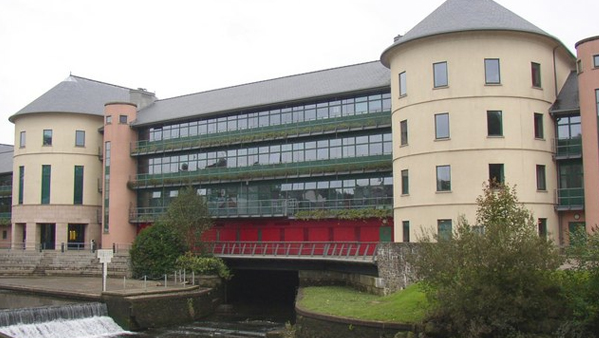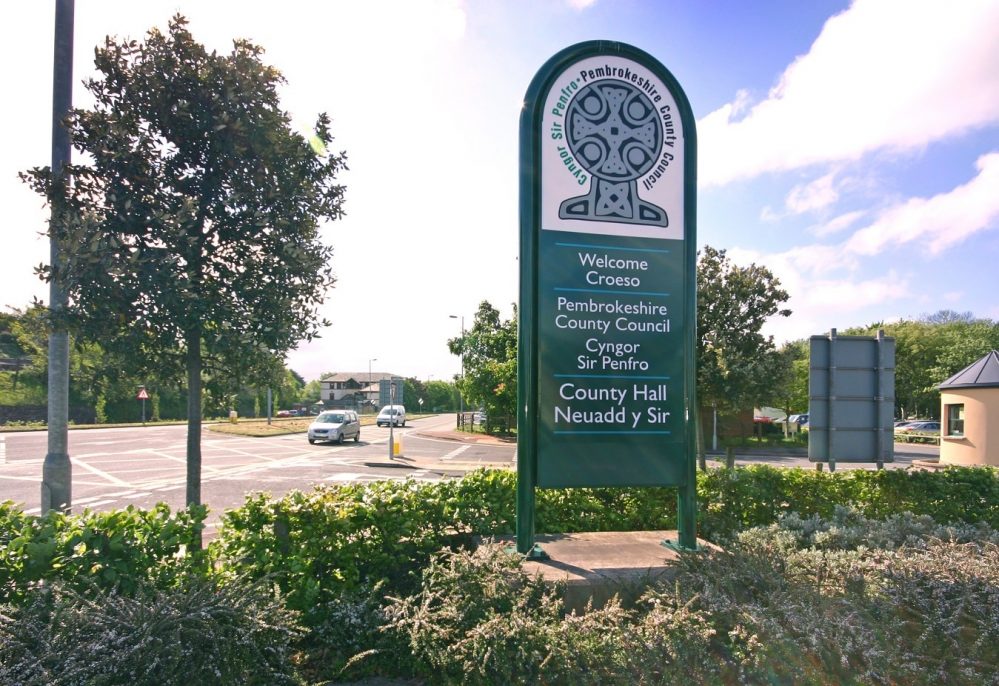Politics
WG settles ‘scandalous’ land sale case

THE WELSH GOVERNMENT has settled a claim against its former advisors about land sales which took place under a purported regeneration scheme.
The Regeneration Investment Fund for Wales (RIFW) had issued proceedings against Amber Fund Management and Lambert Smith Hampton concerning the portfolio sale of 15 properties in 2012.
The settlement has been reached on a commercial basis and without any admission of liability by any party.
The detailed terms have been incorporated into a confidential settlement agreement between the parties.
The Welsh Government Minister for Local Government, Julie James, said the £40.7 million tied up in the Fund can now be made available to support future investments across Wales.
RIFW was set up as an arms-length body by the Welsh Government to allow the Welsh Government to raise money which could then be used to fund regeneration and investments in Welsh businesses.
It was a complete shambles.
One of the advisors appointed had previous connections with one of the parties which bought some of the land at an undervalue.
Vital information was not relayed to the RIFW’s board by the Welsh Government and Board members were kept in the dark about transactions carried out in their name.
Under the oversight of their appointed agents and Welsh Government civil servants, RIFW sold publicly owned assets by private treaty and without prior valuation at a price that reflected the assets’ existing use, under sale terms that provided only limited protection to the public interest in their significant future development values, and via a negotiation process that left RIFW lumbered with undesirable assets.
The Chair of the Senedd Public Accounts Committee, Nick Ramsay MS, said: “The out of court settlement between the Welsh Government and the former advisors of RIFW effectively brings a curtain down on a very sorry and lamentable episode.
“The hasty sell-off of publicly-owned land at bargain-basement prices effectively deprived Welsh taxpayers of tens of millions of pounds which could’ve been used for essential services.
“We look forward to examining matters further with the Permanent Secretary and Head of the Welsh Government Civil Service, Shan Morgan, at our next meeting on Monday, November 23.
“We will be asking what robust steps have been taken to avoid history repeating.”
RIFW was set up as an arms-length body by the Welsh Government to sell off land around Wales including in north Wales, Monmouthshire and Cardiff, and use the money, in conjunction with European funding, to reinvest in areas in need of regeneration.
But the Public Accounts Committee found that the body was poorly managed, poorly overseen by the government, and that, because of a change in the direction of RIFW, from one of regeneration to property asset disposals, some of the Board members felt they lacked the necessary knowledge and expertise to fulfil their roles.
It also learned that the Board was not presented with key information regarding the value of the land in its portfolio, or of expressions of interest from potential buyers.
Fifteen plots of land, originally supposed to be sold separately, were instead sold as a single portfolio at a price which did not take into account potential use of the land in the future. This decision resulted in Welsh taxpayers missing out on tens of millions of pounds of funding.
The Committee learned that one of the organisations charged with offering expert advice to the Board, Lambert Smith Hampton Ltd, had previously acted on behalf of a director of the buyer of the land, South Wales Land Developments Ltd (SWLD), and signed an agreement to do so again one day after the sales went through.
The Committee concluded that the RIFW Board had been poorly served by its own expert advisors.
Angela Burns MS – Shadow Minister for Government Resilience and Efficiency – said: “The Fund was established to sell valuable packages of Welsh Government land, with the money used to support regeneration schemes. However, evidence has since emerged that shows that the sale of RIFW’s assets was undertaken at a loss of tens of millions of pounds. A loss which was borne ultimately by the Welsh Taxpayer and yet another example of the complete inability of this Labour Government to be fiscally prudent.
“Millions of pounds have been squandered, millions that could have been invested in our education and health systems or spent building Wales’ economy or supporting some of our more vulnerable citizens. It’s an absolute scandal and the real scandal is the Welsh Government can slide out of their responsibility for this debacle”
Included in the scandal are:
- Fifteen sites sold for £21 million; with the taxpayer missing out on staggering sums of money
- A site in Rhoose purchased from RIFW for less than £3m – sold on for almost £10.5m South Wales Land Developments Ltd. Taxpayers losing out
- An Abergele site purchased from RIFW for £100,000, without overage, and sold for £1.9million. Taxpayers losing out
- Land in Lisvane sold for £1.8million – worth £39million.
Welsh Conservatives also claim the Welsh Government has squandered £1 billion on other projects, including:
- £221m on uncompetitive Enterprise Zones
- £9.3m on flawed initial funding of the Circuit of Wales
- £97.9m on delays and overspend on the A465 Heads of the Valleys Road
- £157m on the M4 relief road inquiry
- Over £100m propping up Cardiff Airport
Politics
Last-minute council tax lowering to come under spotlight

A CLAIM at last-minute use of reserves was used to lower Pembrokeshire’s council tax increase to avoid senior councillors being defeated during the setting of the council’s annual budget is to come under the spotlight later week.
Pembrokeshire County Council was facing a 16.3 per cent council tax increase when setting the council budget for 2024-’25 in March; that figure dropping to 12.5 per cent after an 11th-hour alternative budget proposal by deputy leader Cllr Paul Miller was narrowly backed.
That drop in the council tax rise was made by using additional reserves of £1.5m, as well as £1m target for council efficiency savings.
Members of the council’s Governance & Audit Committee are, at its April 18 meeting, to consider concerns raised by Councillor Huw Murphy about the budget process following that meeting, along with assurances provided responding to his concerns.
A report for members states: “On March 25 Councillor Murphy raised concerns to the Chair of the Governance & Audit Committee regarding the council’s budget setting process for the 2024-25 budget, and associated issues, which council considered and set at their meeting on March 7.
“The Chair of the Governance & Audit Committee asked the Chief Executive to review those concerns and report to the Committee to provide assurance that there were no procedural failures in the budget setting process.”
Cllr Murphy has written: “An email was sent out on behalf of the Director of Resources on Feb 1 making it clear that no alternative/amendment budget could be presented after Feb 14. However, on March 7 at full council this is exactly what occurred.”
He has raised concerns about why an alternative budget proposal was allowed after February 14, and has asked whether there was sufficient time for the accepted alternative budget to be analysed.
He says his political group advanced a potential budget alternative to use £750,000 in reserve, which was refused, with a maximum of £375,000 offered, along with a later proposal refused, claiming Cllr Miller’s £1.5m proposal may have been submitted just 18 hours before the budget D-day.
In his lengthy document raising his concerns he states: “I am also aware that some ruling group councillors arrived at County Hall very early on March 7 to possibly refine the amendment that was then put before council.
“I form my opinion on becoming aware of a councillor having been contacted repeatedly in an effort to ‘persuade’ him in the weeks before full council to support a council tax of 16.31 per cent who was contacted on two to three occasions on the morning of March 6 and bravely refused to relent and made it clear he could not support a CT of higher than around 12 per cent.
“This councillor is in the ruling group and, in my opinion, his refusal and the refusal of others on the ruling group to buckle to a CT rise of 16.31 per cent caused panic in a Cabinet now facing imminent defeat at full council the next day and as a result they drafted a last-minute alternative/amended budget to appease ruling group councillors who had rebelled.”
The report for members concludes: “There is no evidence of procedural failings in the budget setting process and the legal budget setting procedures have been adhered to. There was sufficient time for officers to properly assess the alternative budget proposed and for the S151 Officer to make a properly informed statement at Council on March 7.”
It is recommended members consider the concerns raised by Cllr Murphy and notes the assurance provided in response to those concerns, and the committee notes that there were no procedural failures in the council’s budget setting process.
Business
Bluestone National Park Resort payments expected to end

A CALL to end a legal agreement for financial contributions associated with the creation of Pembrokeshire’s Bluestone National Park Resort is expected to be backed next week.
In a submitted application to Pembrokeshire Coast National Park on behalf of Bluestone Resorts Ltd, legal firm Red Kite Ltd asks for a cessation of a 2004 Section 106 legal agreement used to pay towards various projects including enhancements to footpaths and bridges.
In a supporting statement says most agreements of this type are time limited, and “today such an arrangement without a timeframe would likely not be considered acceptable by either side.
“However, no such end date was placed on this one. More recently, it was agreed between the parties that the payments would cease in 2025, also known as a ‘statement of common ground’. This is why a formal agreement now has to be made by each of the parties involved.”
The statement says that, since the agreement was made, Bluestone has paid nearly £280,000 through the agreement, adding: “As part of the Statement of Common Ground, it was agreed by Pembrokeshire County Council, Pembrokeshire Coast National Park Authority and Bluestone that a final fee of £113,000 would be paid, spread over 2023, 2024, and 2025 in annual payments of £38,000.”
A report by national park officers, ahead of the Pembrokeshire Coast National Park Development Management Committee meeting of April 24, where it is recommended for approval, says: “The applicant has applied to discharge the Section 106 Legal agreement but the supporting text notes that they applicant is agreeable to making two final payments.
“Having considered the information submitted, officers consider that provided the two final payments are received the legal agreement has served its purpose and can be discharged.
“In order to ensure the two final payments are made, a modification to the Section 106 legal agreement is supported. This decision is supported by Pembrokeshire County Council, who have received a concurrent application which is also recommended by officers for modification.”
The report says the £280,000 figure presented by Bluestone actually amounted to £318,703.87, taking into account a 2023 payment of £38,891.73, with Pembrokeshire County Council’s S106 monitoring officer confirming the contributions have been spent on a range of public rights of way improvements, primarily in nearby Canaston Woods.
Recommending approval, the report adds: “The authority is satisfied that subject to two further payments of £38,000 to be made in August 2024 and August 2025, the obligation no longer serves a planning purpose and can be discharged and as such the obligation should be modified accordingly.”
The 500-acre Bluestone resort near Narberth has, since its opening, contributed to “more than £100 million to local suppliers, £7 million annually into the local supply chain, £13 million annually into the Pembrokeshire economy through its payroll, and more than £1.5 million spent annually on marketing Bluestone and Pembrokeshire.”
Politics
Slurry lagoon near Boncath conditionally approved

AN APPLICATION for a slurry lagoon near the north Pembrokeshire village of Boncath has been conditionally approved by county planners.
A H & V F Picton sought permission for a slurry lagoon and associated works at 230-acre Ty Mawr Farm, a mixed farm of a herd of dairy cattle plus followers, beef cattle, and sheep, some 150 metres north of Boncath.
A supporting statement by agent Cynllunio RW Planning Ltd said: “The proposed development seeks to increase the farms slurry storage capacity to above the five-month storage required by NVZ regulations. The existing slurry store and slurry handling facilities are not adequate to comply with the new regulations.”
It stressed the applicant does not intend to increase livestock numbers on farm as a result of the 48 by 30 metre development.
It added: “The lagoon proposed will have very low banks and as such the proposal will not be visible from the surrounding area. The proposed will be screened by the adjacent building and hedgerow and will have no adverse impact on the landscape in line with relevant policies of the Pembrokeshire LDP.”
One letter of objection to the scheme was received by planners, raising concerns including potential noise, odour, and the impact on property value for their property and properties within the wider village of Boncath.
An officer report said: “It is considered that the location of the development, within a rural setting, is appropriate and sustainable.
“The development allows the operation of the existing farm business and results in positive economic, social benefits and improved welfare facilities. It is considered that sufficient need is evidenced and that the lagoon is justified.”
The application was conditionally approved.
-

 Crime7 days ago
Crime7 days agoFormer Pemb Dock mayor accused of making child abuse images
-

 Community2 days ago
Community2 days agoThe Harbourmaster: Special rail excursion draws crowds to Milford Haven
-

 News1 day ago
News1 day agoDragon LNG ‘monitoring’ scrap car blaze in Waterston
-

 Crime6 days ago
Crime6 days agoDock duo sentenced for Aldi meat theft
-

 Crime6 days ago
Crime6 days agoMechanic lands four-figure fine after head-butting officer in Quins
-

 News2 days ago
News2 days agoSearch for Luke, 19, reported missing in the Pembroke Dock area, continuing
-

 News3 days ago
News3 days agoMajor search in the area of The Cleddau Bridge and Hobbs Point
-

 Business7 days ago
Business7 days agoMilford Waterfront major events partnership with Round Table
























